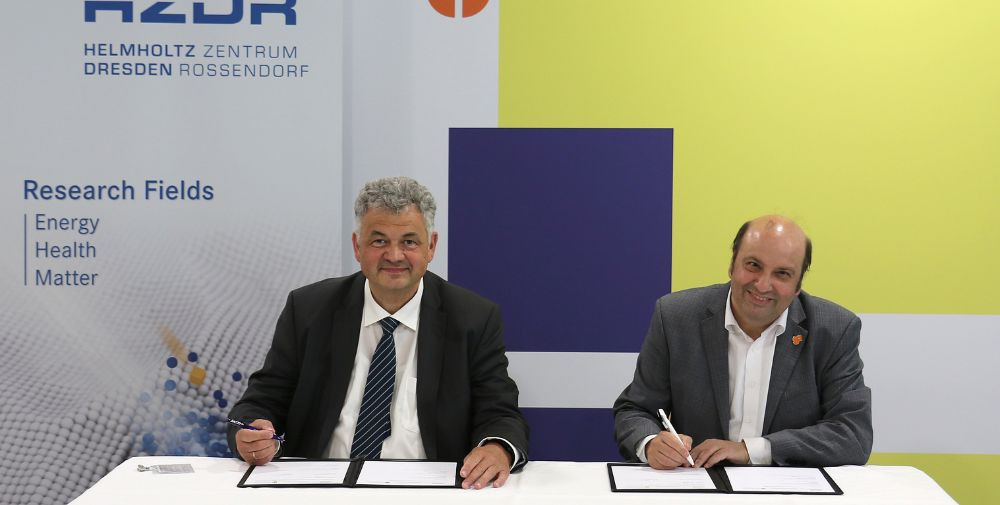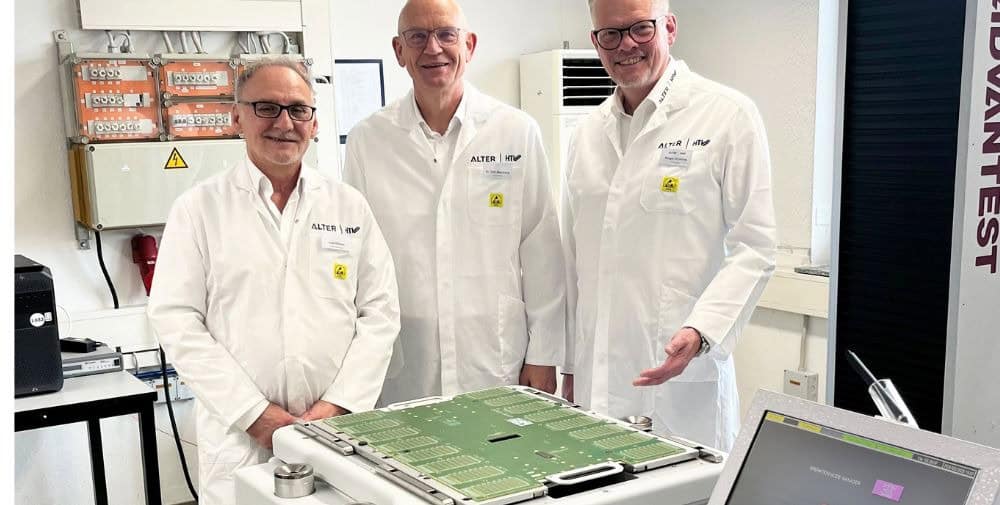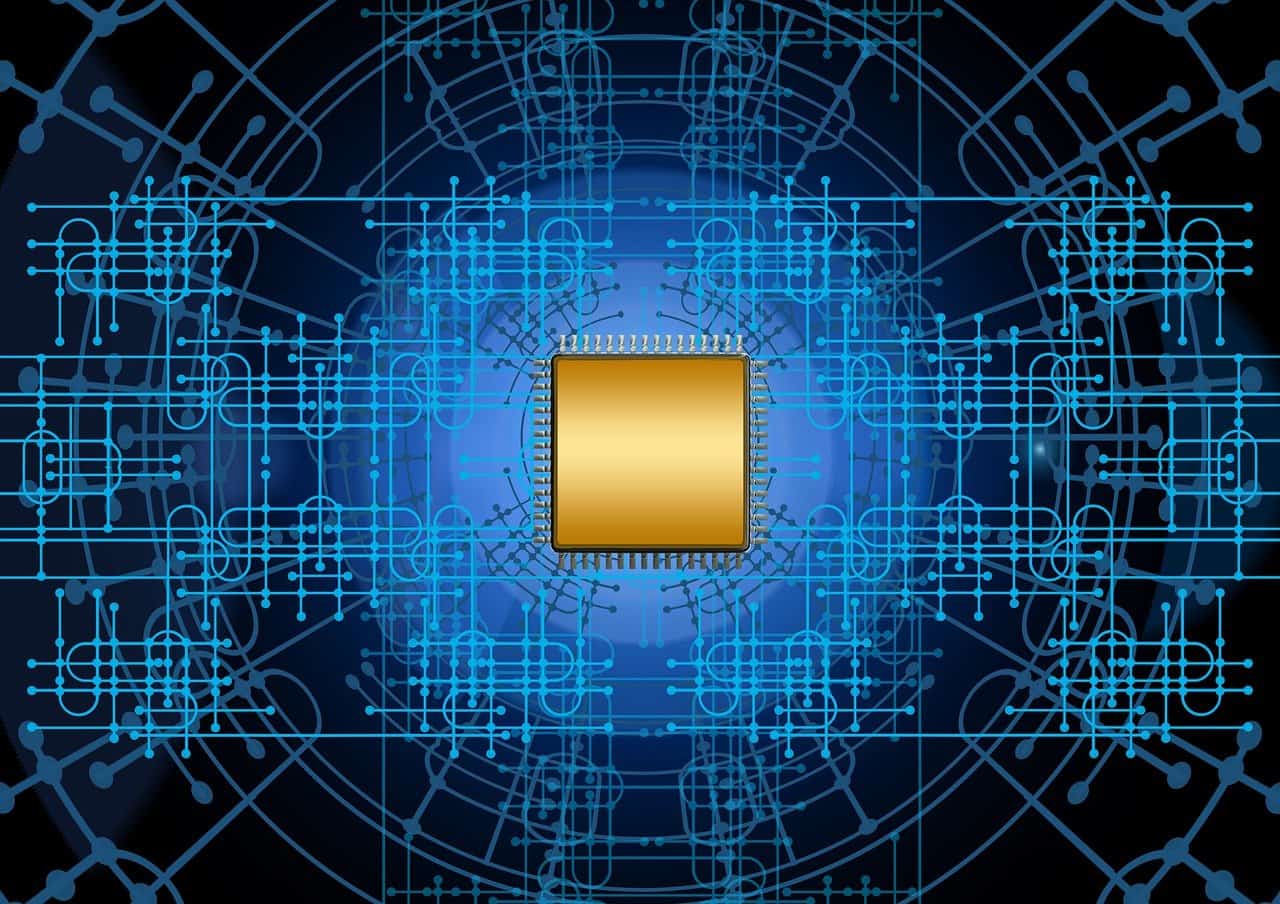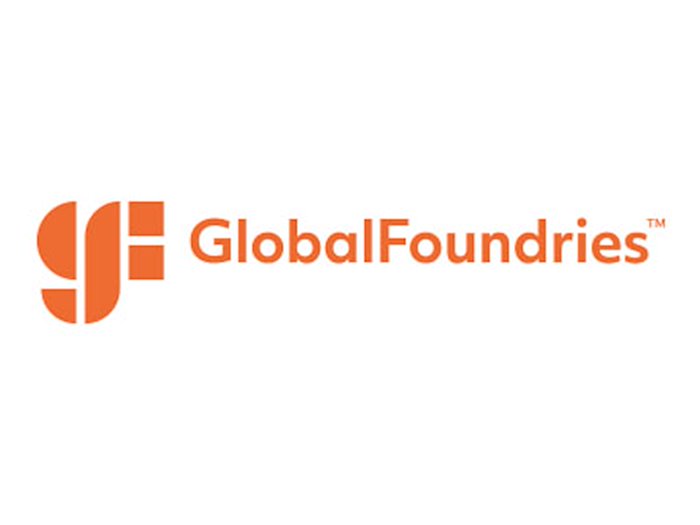
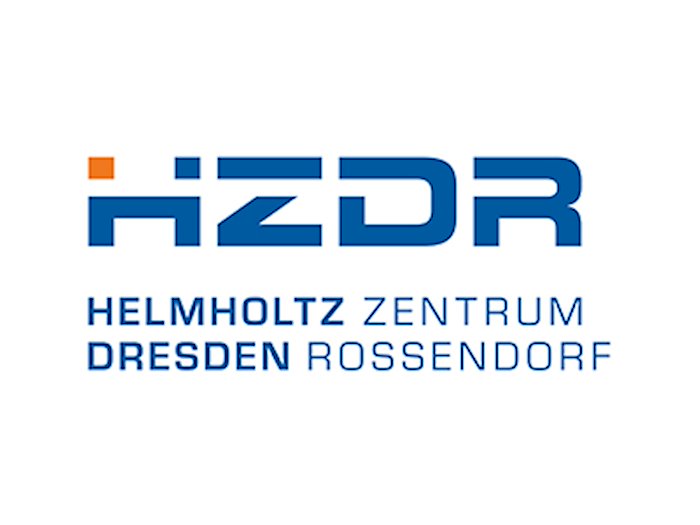
“Diversity and cosmopolitanism are of crucial importance for our research center,” emphasized Sebastian M. Schmidt during the contract signing ceremony at GlobalFoundries Dresden. “Different perspectives lead to better ideas to tackle the complex challenges of our time. I am extremely pleased that in GlobalFoundries we have found a partner who shares this view and with whom we can implement projects to promote these values.”
Dr. Manfred Horstmann added: “As a leading semiconductor company in Europe, we are delighted that we have been able to gain an internationally leading center of excellence as a partner in the HZDR. Together we offer highly qualified young scientists a unique insight into our global company with employees from 45 nations. This cooperation is making an important contribution to providing specialists in Silicon Saxony with attractive prospects for the future.”
Scientists get a taste of corporate life
To achieve these goals, the two parties have agreed on a number of measures: These include organizing joint workshops for further training, creating opportunities for trainees to gain insights into other professions, and exchanging intercultural experiences. Events and network meetings are to play a central role, for example the Company Visits, the first of which took place following the signing of the contract in the afternoon. Around 20 young HZDR scientists took the opportunity to get to know both the modern semiconductor laboratories and the corporate culture during a tour of the chip factory.
Managers are also expected to benefit from the deepened cooperation: Here, the partners can build on the positive experiences in cross mentoring. In the program, in which several companies and organizations from Dresden participate, prospective and experienced managers come together to share their knowledge and expand their professional network in the city. Participating in the current edition are Dr. Katerina Falk, postdoctoral researcher in radiation physics at HZDR, and Yvonne Keil, senior director of global materials procurement at GlobalFoundries.
Common research topics: Memory technologies and neuromorphic chips
Not least, both institutions see great potential in exchanging ideas in selected research areas. On the one hand, this concerns the analysis and development of hardware in memory and information technology, for example in the development of standards for ion implantation to change the properties of silicon. Another research project is the NIMFEIA project funded by the European Union. Here, researchers from HZDR and GlobalFoundries are working on making so-called neuromorphic chips fit for industrial production. The components, which are modeled on the functioning of the human brain, have very low energy consumption and could be used for distance and speed measurements in autonomous driving.
The agreement now concluded runs until the end of 2025. Both parties intend to turn the memorandum of understanding into a long-term cooperation agreement by then.
Further links
www.hzdr.de
www.gf.com
Photo: GlobalFoundries
